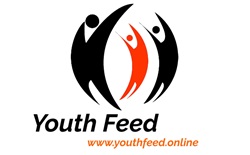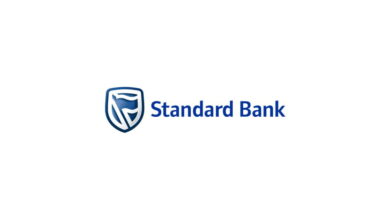HOW TO APPLY NSFAS 2024 SUCCESSFUL

WHAT ARE THE REQUIREMENT TO APPLY
To NSFAS, Applicants must be citizens or permanent residents of South Africa. The total annual gross household income should not exceed R350,000, or R600,000 for households with persons living with disabilities. Individuals receiving assistance from SASSA automatically meet the financial eligibility criteria. It is necessary to have an email address and cell phone number.
The required documents include a copy of the student ID or birth certificate, as well as copies of the IDs of parents, guardians, or spouses. Both sides of the smart card must be provided. Proof of income is necessary for those who have applicable sources of income.
Persons living with disabilities must complete the Disability Annexure A form. If the applicant is recognized as a vulnerable child by the Department of Social Development, they must submit a completed Vulnerable Child Declaration form from a social worker. If the applicant does not have family member details or an abridged birth certificate, they must complete the Non-SASSA Declaration form.
The NSFAS system will generate a list of required documents based on the type of application. Affidavits and driver’s licenses are not accepted as proof of identification.
To apply, NSFAS, take advantage of the convenience of online applications from your phone, tablet, or computer. Registration and application are simple and free. Your ID number will serve as your username, so be sure to keep your personal information secure.

Yes, students who have already been funded but need to change their qualifications or institutions can still apply as returning students.
Do TVET students who are transitioning to a university have the option to apply on the 2024 platform?
Yes, they do.
Are students with advanced certificates eligible to apply?
Yes, they are.
NSFAS funding covers registration and tuition fees for approved applicants. Once funding is confirmed, applicants may also receive allowances for living expenses, learning materials, personal care, and accommodation or transportation. To find out which qualifications and institutions are funded by NSFAS, visit WWW.nsfas.org.za. To be eligible to apply, applicants must be South African citizens or permanent residents.
The combined gross household income should not exceed R350,000 per annum, or R600,000 per annum for persons living with disabilities. SASSA recipients automatically qualify based on financial eligibility. Applicants must also have an email address and cell phone number, to apply NSFAS, Students who started studying before 2018 with a combined household income of no more than R122,000 per annum are also eligible.
Submitting the correct supporting documents is crucial for NSFAS to process funding applications in a timely manner. The required documents include a copy of the applicant’s ID, which can be a temporary ID issued by the Department of Home Affairs. Non-SASSA applicants must also provide ID copies of their parent(s), legal guardian(s), or spouse. If the applicant has a smart ID card, copies of both sides must be provided. for another information you can check https://youthfeed.online
Your latest payslip should not be older than 3 months, and you will also need a UIF letter, appointment letter, and retrenchment letter (if applicable to you or your parent(s), legal guardian, or spouse). Please note that passports and driver’s licenses will not be accepted as proof of identification. It is important to remember that no affidavits will be accepted as proof for any funding requirement, NSFAS.

If you are wondering how and where to apply for NSFAS funding, you can easily do so online at www.nsfas.org.za using a cellphone, tablet, or computer. Just follow these simple steps: 1. Visit www.nsfas.org.za and click on the ‘my NSFAS’ tab. 2. Create a my NSFAS account. 3. Click on the ‘APPLY’ tab and complete the required sections. 4. Upload any necessary supporting documents. 5. Click on ‘Submit’. If you do not have access to a digital device or the internet, don’t worry.
You can visit your nearest National Youth Development Agency (NYDA) or to apply in person, following the same steps. If you have entered your ID number, name, and surname but are unable to continue with your application, please ensure that you have typed in the information exactly as it appears on your ID document or birth certificate. The system validates all information against the records from the Department of Home Affairs. Please note that your documents do not need to be certified. certification of documents.
Table of Contents
If you have previously applied for NSFAS in or before 2023 and your application was not approved, but you still require funding for 2023, you are eligible to reapply as long as you meet the funding criteria. I was approved for NSFAS funding, but I did not register within the designated time period. Will I need to reapply for 2024? Yes, you will need to reapply.
Once your NSFAS application is approved, you have one year to register at a TVET college or university. If you were approved for NSFAS funding for the 2020 academic year but failed to register for a full year, you will need to submit a new application. I have been studying at a TVET college this year, but I would like to continue my studies and pursue a university qualification in 2024.

Do I need to apply again? Yes, you will need to apply. In order to receive funding for an approved university qualification in 2022, you must have successfully completed your TVET qualification. Additionally, you must ensure that you apply at the university for a course that is funded by NSFAS. If I do not have a cellphone, how can I apply for funding? To apply for NSFAS funding, it is necessary to have a working cellphone, a valid cellphone number, and your own email address.
If you don’t possess a cellphone, you have the option to utilize the cellphone of a trusted guardian or relative. However, it is advisable to have your own cellphone number. It is important to note that each applicant must have a unique cellphone number and email address. This information is necessary for the creation of a myNSFAS account, which will be used for funding applications.
I am not receiving the One Time Pin (OTP). How can I obtain it? To receive the OTP, you can select the option to request another one to be sent to you. How long does it take for NSFAS to verify my information with the Department of Home Affairs (DHA)? The verification process for your ID number, name, and surname is conducted immediately when setting up your my NSFAS account.
they rely on the verified details provided by the Department of Home Affairs (DHA). If any of the information is incorrect, you will need to contact DHA to correct it.
What should I do if I have an existing ‘my NSFAS’ account but have forgotten my previous username, password, and cellphone number? How can I reset my profile? To reset your ‘my NSFAS’ login details, please follow the steps below: STEP 1 – www.nsfas.org.za, click on ‘my NSFAS’, and then select ‘forgot password’. STEP 1 – Indicate your assistance needs: password, username, or both. Click on the ‘submit’ button. STEP 2 – An SMS and email will be sent to you containing your username and a link to reset your password. STEP 3 – Access the link provided to be directed to the password reset page.




